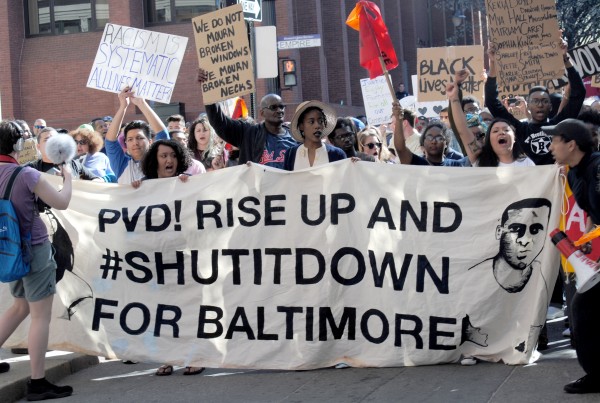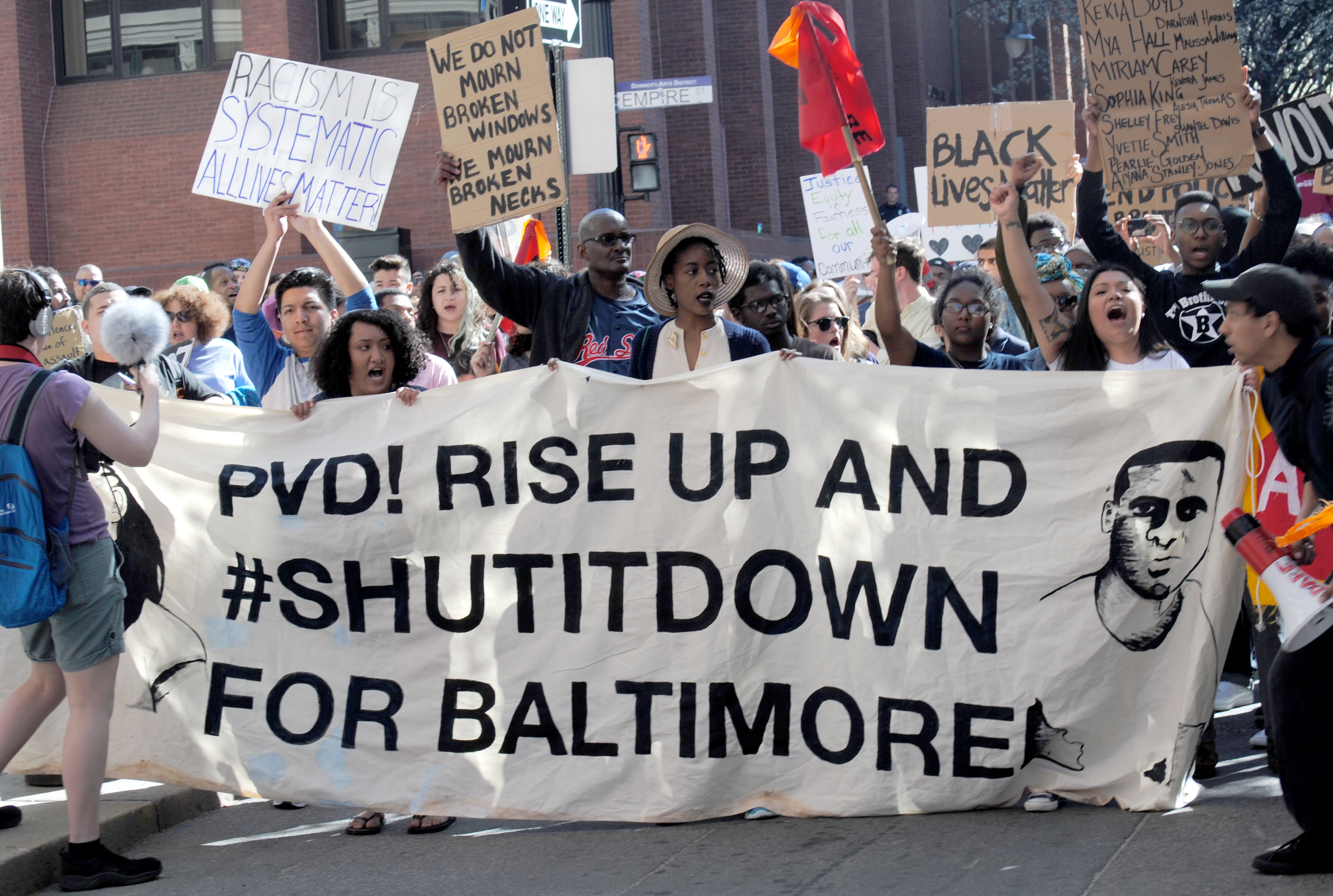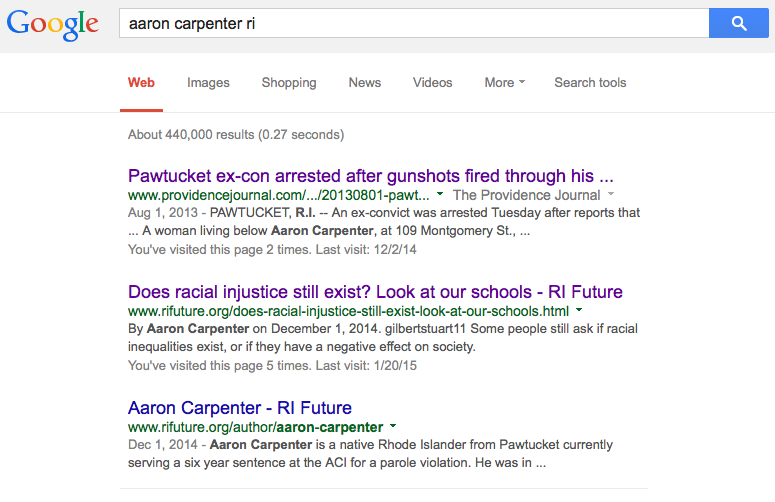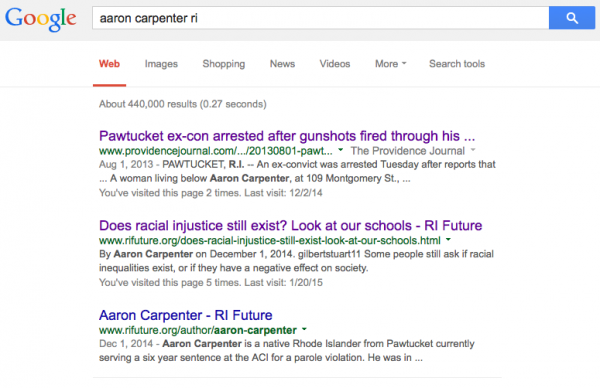 As the nation watched Baltimore grapple with the latest wave of police brutality, there has been a great deal of outcry in the media and opinion pages touting the virtues of “nonviolence.” We have seen in the past weeks that it is possible to have angry confrontation without violence. Anger is powerful: it represents the pain of the aggrieved, and the stakes of the fight. One can yell peacefully in anger, yet we have no category to understand such behavior. We should be supporting anger; what’s more, we should avoid conflating “non-confrontation” with “nonviolence.” Extolling the perceived virtues of non-confrontation—in the name of nonviolence—weakens a movement.
As the nation watched Baltimore grapple with the latest wave of police brutality, there has been a great deal of outcry in the media and opinion pages touting the virtues of “nonviolence.” We have seen in the past weeks that it is possible to have angry confrontation without violence. Anger is powerful: it represents the pain of the aggrieved, and the stakes of the fight. One can yell peacefully in anger, yet we have no category to understand such behavior. We should be supporting anger; what’s more, we should avoid conflating “non-confrontation” with “nonviolence.” Extolling the perceived virtues of non-confrontation—in the name of nonviolence—weakens a movement.
Protestors in Baltimore have angrily expressed frustration with media coverage of their city. Media, they say, refused to cover the structural injustices that have created the problems Baltimore faces, and yet greedily run images of looting, painting the city and its African-American citizens as lawless. Angry confrontation and violence are synonymous in people’s minds thanks to this kind of representation.
Ta-Nehesi Coates argues that nonviolence, when it “begins halfway through the war with the aggressor calling time out, exposes itself as a ruse.” He calls nonviolence the “right answer to the wrong question.” His point is that when nonviolence is advocated as an attempt to avoid the repercussions of oppression, it rings false.
For me, the lesson from this is a little different. It is also straightforward: first, to move a big system, people need to get angry. Second, angry protest—not violent protest— that puts people on the line can effectively do that. Protests are necessary because they move outside the institutionalized form of dissent (petitions, letterwriting, etc.) that are easy for those in power to ignore. Quite literally, protests command attention.
I am a sociologist, and study after study in my field finds that, in order to take on a large and entrenched power structure, people need to break out of the rules that structure imposes. The Civil Rights movement did not achieve success because people wrote polite petitions and met with their legislators, although they did—it was successful because people took to the streets. Female suffragists seeking the vote in America were arrested for picketing because they could not make legislators listen to “polite” requests. Power is rarely, if ever, shared willingly that way. Challenging powerful systems requires acting outside that system. If a political structure is not designed to acknowledge grievances from people, people must go outside of it to be heard. In Baltimore, that means being in the streets. And in Baltimore, it worked.
That, to me, is what the events of the past few weeks are about. It is empowering: 10,000 people protested in the wake of the Freddie Gray murder. Contrary to the popular media accounts, the vast majority of protests were peaceful. People were justifiably angry. And Baltimore officials responded: the city is pressing charges against the six officers who killed Mr. Gray.
Nonviolence is a principle to which I adhere in my own life. It should not be conflated, however, with non-confrontation, or with non-anger. Anger here is rational. It is confrontation of injustice, accompanied by emotional commitment, that moves mountains.



